The Connection Between Learning Disabilities and Language Development
27 January 2025
Language is an incredible tool, isn’t it? We use it every day to communicate, express emotions, and make sense of the world around us. But what happens when language development doesn't follow the typical path? For some children and even adults, learning disabilities can have a significant impact on how they acquire and develop language skills. This connection between learning disabilities and language development is a vital topic in education, and it’s one that parents, teachers, and caregivers should understand more clearly.
In this article, we’re going to dive deep into how learning disabilities affect language development, why early intervention matters, and what strategies can help those who are struggling. So, grab a cup of coffee and let’s explore this fascinating and important topic together.

What Exactly Are Learning Disabilities?
Before we get into how learning disabilities and language development are connected, let’s first clarify what we mean by “learning disabilities.” There’s often a lot of confusion surrounding this term. Learning disabilities are neurological disorders that affect the brain's ability to receive, process, store, and respond to information. They can make tasks like reading, writing, and math more difficult, but they do not reflect a person’s intelligence level.Common types of learning disabilities include:
- Dyslexia (difficulty with reading and language processing)
- Dyscalculia (difficulty with math concepts)
- Dysgraphia (difficulty with writing)
- Auditory Processing Disorder (difficulty understanding auditory information)
- Non-Verbal Learning Disability (difficulty with visual-spatial and organizational skills)
So, learning disabilities are not a result of laziness, lack of motivation, or poor teaching. They are real challenges that some people face, and they affect how information is processed in the brain. But how does this relate to language development?

The Role of Language Development
Language development is one of the most critical milestones in a child’s early years. It encompasses everything from learning to babble as a baby to developing complex sentence structures as a teenager. Language skills are essential for social interaction, academic success, and emotional well-being.Typically, language development follows a predictable sequence:
1. Infants coo and babble as they become familiar with sounds.
2. Toddlers begin to form simple words and phrases.
3. By preschool, most children can form complete sentences and start to grasp grammar rules.
4. As school-aged children, they expand their vocabulary and learn to communicate thoughts and emotions more effectively.
However, when a child has a learning disability, this process can be delayed or disrupted. For example, a child with dyslexia may struggle to learn new words or comprehend spoken language, even though they might be highly intelligent in other areas. This is where the connection between learning disabilities and language development becomes crucial to understand.
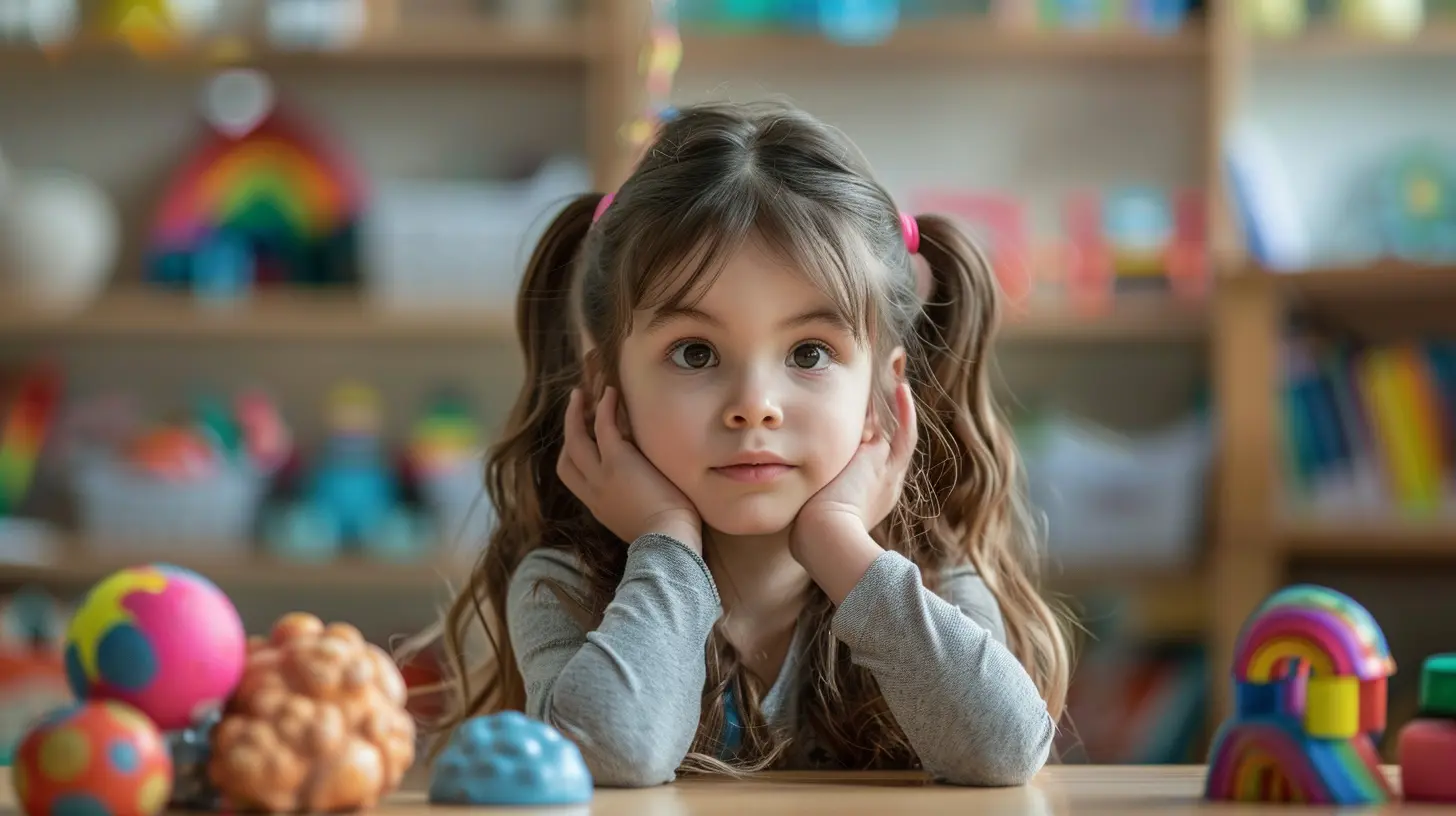
How Learning Disabilities Impact Language Development
1. Dyslexia and Language Processing
Let’s start with one of the most well-known learning disabilities: dyslexia. Dyslexia is more than just mixing up letters or struggling to read. It’s a complex condition that affects how the brain interprets written and spoken language. A child with dyslexia might have trouble recognizing sounds in words (a skill called phonemic awareness), which is one of the building blocks of reading.This difficulty can make it hard for children with dyslexia to develop language skills at the same rate as their peers. They might take longer to learn new vocabulary or have trouble understanding complex sentences. As a result, their ability to communicate effectively can be affected.
2. Auditory Processing Disorder and Communication
Auditory Processing Disorder (APD) is another learning disability that directly impacts language development. Children with APD can hear sounds just fine, but their brain has trouble processing and interpreting those sounds. It’s a bit like listening to a radio with static in the background—it’s hard to make sense of what’s being said.This can lead to delays in language development because the child may struggle to differentiate between similar sounds or follow verbal instructions. Over time, these challenges can impact reading, writing, and even social interactions, as language is the foundation of communication.
3. Dysgraphia and Language Expression
Dysgraphia primarily affects writing skills, but it can also impact a child's ability to express themselves through language. Writing is a key form of communication, and children with dysgraphia may struggle to organize their thoughts on paper, spell words correctly, or even hold a pencil properly. This can create a barrier to learning and using language effectively.In some cases, children with dysgraphia may have great ideas but find it difficult to get them down on paper, leading to frustration and lower self-esteem. The struggle with written language can also hinder academic progress, as many subjects rely on written communication.
4. Language-Based Learning Disabilities
There are also specific language-based learning disabilities, such as Specific Language Impairment (SLI). These conditions directly impact a child’s ability to understand and use spoken language. Children with SLI may have difficulty forming complete sentences, using correct grammar, or following conversations. This goes beyond the typical language development delays seen in young children and can persist into adolescence and adulthood.5. Social and Emotional Impact
It’s important to note that language development doesn’t just affect academic skills; it also plays a big role in social and emotional development. Children with learning disabilities that affect language may struggle to make friends, participate in group activities, or express their thoughts and feelings. This can lead to feelings of isolation and frustration.For instance, a child with dyslexia might avoid reading out loud in class because they’re afraid of making mistakes. Over time, this can impact their confidence and willingness to engage in social situations. In this way, learning disabilities can create a ripple effect that extends beyond the classroom.

Why Early Intervention Matters
The good news is that, with the right support, children with learning disabilities can thrive. Early intervention is key to helping children develop the language and communication skills they need to succeed. The earlier a learning disability is identified, the sooner strategies can be put in place to support language development.1. Speech and Language Therapy
Speech and language therapy is often one of the first steps in helping children with language-based learning disabilities. Speech therapists work with children to improve their understanding and use of language, whether that’s through building vocabulary, practicing sentence structure, or improving articulation.2. Individualized Education Plans (IEPs)
In many schools, children with learning disabilities are eligible for an Individualized Education Plan (IEP). This is a customized plan that outlines specific learning goals and the support a child needs to reach them. For children with language development issues, this might include extra time on tests, one-on-one tutoring, or specialized reading programs.3. Parental Support
Parents play a crucial role in supporting their child’s language development. Simple activities like reading together, playing word games, or having conversations about everyday topics can go a long way in helping children build their language skills. Encouragement and patience are key, as children with learning disabilities might need more time and practice to develop these skills fully.Practical Strategies for Supporting Language Development
So, what can you do if you suspect your child has a learning disability that’s impacting their language development? Here are some practical strategies that can help:1. Read Aloud: Reading aloud to your child helps them hear how language sounds and exposes them to new vocabulary. Choose books that are engaging and at the right reading level.
2. Break Tasks into Small Steps: Children with learning disabilities often do better when tasks are broken down into smaller, more manageable steps. This is especially true for language-related tasks like writing a story or learning new vocabulary.
3. Use Visual Aids: Visual aids like charts, pictures, and diagrams can help children understand language concepts better. For example, using a picture of a cat when teaching the word “cat” can help solidify the connection between the word and the object.
4. Encourage Communication: Give your child plenty of opportunities to communicate, whether through speaking, writing, or even drawing. Encourage them to ask questions, express their feelings, and tell stories.
5. Be Patient and Positive: Learning disabilities can be frustrating, but it’s important to stay patient and positive. Celebrate your child’s progress, no matter how small, and remind them that everyone learns at their own pace.
Conclusion
The connection between learning disabilities and language development is complex but incredibly important to understand. Learning disabilities can affect how a child processes, understands, and uses language, which in turn can impact their academic performance and social interactions. However, with early intervention, the right support, and a lot of patience, children with learning disabilities can overcome these challenges and develop strong language skills.If you suspect your child is struggling with language development due to a learning disability, don’t hesitate to seek help from professionals such as speech therapists, educators, and pediatricians. Remember, every child has unique strengths, and with the right tools and strategies, they can succeed.
all images in this post were generated using AI tools
Category:
Learning DisabilitiesAuthor:

Bethany Hudson
Discussion
rate this article
16 comments
Yvette Maddox
This article insightfully explores how learning disabilities can impact language development in diverse ways.
April 5, 2025 at 2:24 AM

Bethany Hudson
Thank you for your thoughtful comment! I'm glad you found the article insightful.
Kenneth Benson
Learning disabilities and language development? More intertwined than your last messy breakup! Time to break the stigma and embrace the unique ways we all communicate. Let’s talk!
March 14, 2025 at 4:04 AM

Bethany Hudson
Absolutely! Breaking the stigma is essential for understanding and supporting diverse communication styles. Let's continue this important conversation!
Gabriella McGuire
Understanding the link between learning disabilities and language development is like finding the missing puzzle piece—once it clicks, everything makes more sense! Let’s celebrate the unique pathways our brains take to communicate, because every word counts in this delightful game of verbal charades!
February 4, 2025 at 5:19 AM

Bethany Hudson
Thank you! I'm glad you see the importance of this connection. Celebrating diverse learning pathways enriches our understanding of communication. Every insight truly does matter!
Dusk Carr
This article beautifully highlights the often-overlooked link between learning disabilities and language development. It's a reminder that each child's journey is unique, and understanding these connections can empower both educators and parents to foster growth and confidence.
February 3, 2025 at 11:27 AM

Bethany Hudson
Thank you for your insightful comment! I'm glad you found the article meaningful in recognizing the unique journeys of each child.
Hazel Benson
Unlock potential: understanding learning disabilities transforms language development and empowers every learner's journey!
February 2, 2025 at 9:49 PM

Bethany Hudson
Thank you for your insightful comment! Understanding learning disabilities is indeed key to fostering language development and empowering all learners.
Faye Parker
This article effectively highlights the intricate relationship between learning disabilities and language development. Understanding how these challenges intersect can empower educators and parents alike to adopt targeted strategies, fostering better communication skills and overall academic success for affected learners. Insightful and essential read!
February 2, 2025 at 4:11 AM

Bethany Hudson
Thank you for your thoughtful comment! I'm glad you found the article insightful and that it highlights the importance of understanding this connection for better support in education.
Zoey Montgomery
Thank you for shedding light on this important topic! Understanding the link between learning disabilities and language is crucial for support.
January 31, 2025 at 7:45 PM

Bethany Hudson
Thank you for your feedback! I'm glad you found the topic important—it's essential for fostering better support for individuals with learning disabilities.
Lexi Nelson
This article highlights the crucial link between learning disabilities and language development. Understanding this relationship is essential for educators and parents alike, as early intervention and tailored support can significantly enhance communication skills and overall learning outcomes for affected individuals.
January 31, 2025 at 11:55 AM

Bethany Hudson
Thank you for your insightful comment! I completely agree—recognizing the connection between learning disabilities and language development is vital for effective early intervention and support.
Astoria Rocha
This article beautifully highlights the vital link between learning disabilities and language development—important insights for educators.
January 30, 2025 at 8:54 PM

Bethany Hudson
Thank you! I'm glad you found it insightful; understanding this connection is crucial for effective teaching.
Finley Russell
This article beautifully highlights the vital link between learning disabilities and language development. It’s so important to understand these connections for better support. Thanks for shedding light on a topic that resonates with many of us!
January 30, 2025 at 11:53 AM

Bethany Hudson
Thank you for your thoughtful comment! I'm glad you found the article insightful and that it resonates with so many. Understanding this connection is indeed crucial for fostering better support.
Peyton Daniels
Great article! It’s so important to understand how learning disabilities can impact language development. Thanks for shedding light on this topic!
January 30, 2025 at 3:32 AM

Bethany Hudson
Thank you for your kind words! I'm glad you found the article helpful in highlighting this important connection.
Sorin Riggs
Great insights! Understanding the link between learning disabilities and language development is crucial for supporting all learners on their journey.
January 29, 2025 at 4:17 AM

Bethany Hudson
Thank you! I'm glad you found the insights valuable. Supporting learners requires a deep understanding of these connections.
Zander Castillo
This article highlights the crucial link between learning disabilities and language development. Understanding this connection can inform effective teaching strategies, ultimately fostering better communication skills and academic success for individuals facing these challenges. Great insights!
January 28, 2025 at 4:52 AM

Bethany Hudson
Thank you for your thoughtful feedback! I'm glad you found the insights valuable in understanding the connection between learning disabilities and language development. Your support is appreciated!
Mira McCaw
Understanding the link between learning disabilities and language development is crucial; early intervention can significantly enhance communication skills and academic success.
January 27, 2025 at 7:52 PM

Bethany Hudson
Thank you for your insightful comment! I agree that early intervention can play a vital role in improving communication and academic outcomes for those with learning disabilities.
Cash Franco
This article provides valuable insights into how learning disabilities can impact language development. By highlighting the interconnectedness of these areas, it encourages educators and parents to adopt tailored strategies that support effective communication and learning. Understanding this relationship is crucial for fostering better educational outcomes for affected individuals.
January 27, 2025 at 11:42 AM

Bethany Hudson
Thank you for your thoughtful comment! I'm glad you found the insights valuable in supporting effective strategies for education and communication.
Zephyrine Kirkland
Critical insights on language's role in learning disabilities.
January 27, 2025 at 3:24 AM

Bethany Hudson
Thank you! Language plays a crucial role in learning disabilities, as it affects communication, comprehension, and the ability to process information, ultimately influencing learning outcomes.
MORE POSTS

How to Recognize the Early Signs of Teacher Burnout

Encouraging Critical Thinking in Environmental Science

How to Use Failure as a Stepping Stone to Skill Mastery
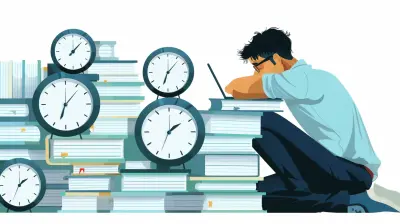
Creating a Balanced Work-Life Routine as a Teacher
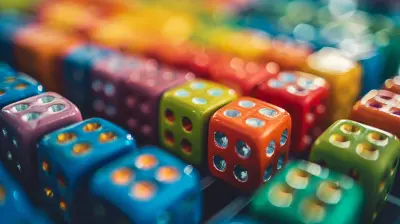
The Benefits of Learning Math in a Multisensory Environment
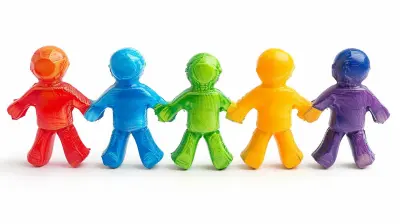
Teamwork in the Classroom: Strategies for Effective Group Learning

Creating Sustainable Outdoor Classrooms for Every School
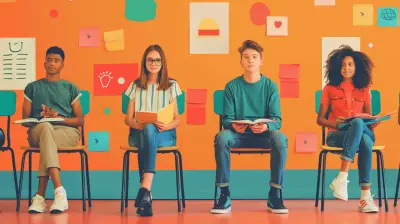
Engaging Students Through Effective Classroom Management

The Power of Positive Thinking in Student Success
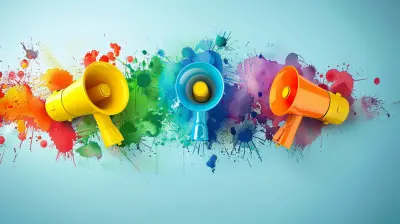
Learning English Through Social Media: Tips and Suggestions